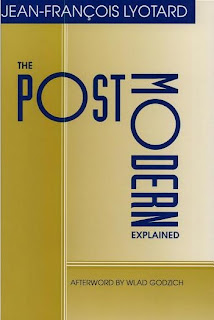Professor David Buckingham:
Chewing gum for the brain: Why do people talk such rubbish about Media Studies?
Why Media Studies is worth studying.
Professor David Buckingham explored the different views on how media is shown. As coming from a media class your biased to what we see in the media; David Buckingham explored these different effects the media have on different things, for example different lessons. He explained that the ignorance of the audience; meaning that if you don't do the subject your more likely to not understand why its becoming what it is.
As he said he concentrates on the young people's reaction with media; with electronic media and media education, the argument between older people and media have become more obvious over the years.
One of the arguments he covered was the thought that media had to be shown to so that sex and drinking would become less of a problem as its taught through media, but is this the case?
I learnt a lot from this lecture, as it helped me understand not only my views but what other people think about it. I noticed that as media has become more popular more and more people are disliking it for what it produces, but has this become our guilty pleasure?
http://www.guardian.co.uk/commentisfree/2009/aug/22/media-studies
Dr Julian McDougall:
Online media, Cleggmania, and the Cowell Factor.
How do online media and convergence impact on the ways audiences and producers use and create media?
Dr Julian McDougall expresses how media has been developed over the years. He shows us how first media was 'media 1.0' and the web was 'web 1.0', but now since media has hit further expectations we can no longer call it that, and now have to update it to 2.0.
New media now relies upon each other to become new, but this is just old fashion as nothing can become brand new. He used an example that Simon Cowell is more popular then most historic figures. The video he showed us from America shows us how people are more likely to know a celebrity than someone who runs the government.
Five questions he mentioned when talking about media:
- What power do people have?
- Where did you get it from?
- In whose interest do you exercise it?
- To where is it acceptable?
- Limits and threats
Theres an increase in interplay between gaming online, tv and films.
- Web2.0 - "elockment" that we share
- Web1.0 - all on your own
This means there has been a major increase in the amount of interactivity we have with each other, this means us a community will never stop.
As well as there is a Web2.0 and 1.0 there is also a media version, this means there is;
- Media1.0 - Newspapers
- Media2.0 - Online newspapers, interactivity.
This means were in the middle of a crisis, as generations develop, there will be no more newspapers, as you will get all the information yourself.
I learnt a lot from this speaker, he gave us on a view on how far media has actually come over the last 10 years, and how the future depends on us, and our laziness to the media.
http://www.blogger.com/profile/16148196250407739887
http://wethemedia.oreilly.com/
Pete Fraser:
Perfecting your production work.
How to get the most out of your practical projects.
PetesMediaBlog
Keywords
- Research & Planning
- Blogging & Evidence
- Ideas & Feedback
- Logistics, equipment & Production
Research
- Really Look at real examples
- Keep evidence of all your research
- Research every angle
- Conventions, Audience, Institutions etc.
Simple Mistakes Cost!
Planning
- Plan for all eventualities - what could possible go wrong?
- Record all your planning - Visuals?
- Show the process of your "Journey"
Blogging
- A blog allows you to link to examples, ideas & inspirations
Evidence
- Storyboards, animatics, real photos
- Video to show edit
Ideas
- Keep ideas simple
- Have a workable concept with realistic plans
- Try the "25 word pitch" or the "lift pitch"
Get Feedback
- At all stages from peers, teachers & others
- Keep records of the feedback
Take Notice!
Logistics
- People, places, drops, costumes
- Get it done early, you may need to do it again
- Rehearse & prepare
Equipment
- Practise on it
- Prepare it, get to know it
- Start with the big picture
www.artofthetitle.com
I learnt the most from this speaker as I could use all this when doing my production work, this will help by making the final outcome and working in a group.
Professor Annette Hill:
Paranormal Media: audiences, spirits and magic in popular culture
Supernatural media, audiences, and key concepts at A level.
Has horror films and the likeness of them made it become the norm?
She explains how spiritual events and scary things, have become more popular by media. Media has put more a glamour on creepy things, by making horror films, and ghouls less scary. There are no explanation to all these which is why audiences want to watch.
Things To Know!
- Colaborate
- Diversity
- No Right Answers
- Take Risks
- Be Selective
- Make Connections
- Get Active




































